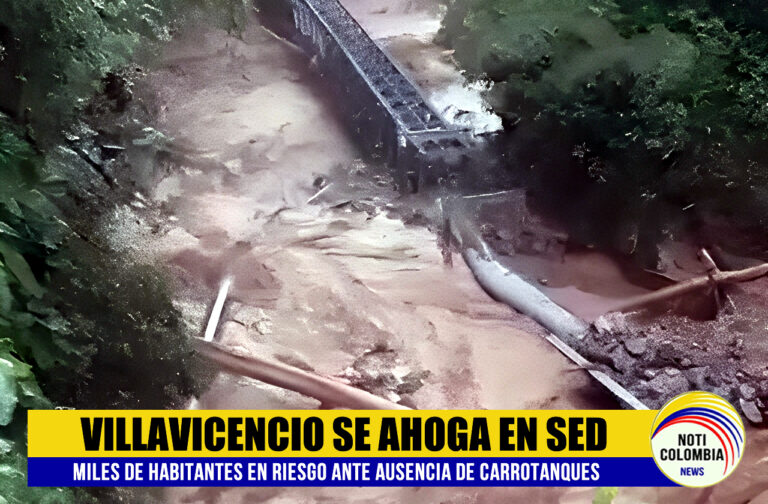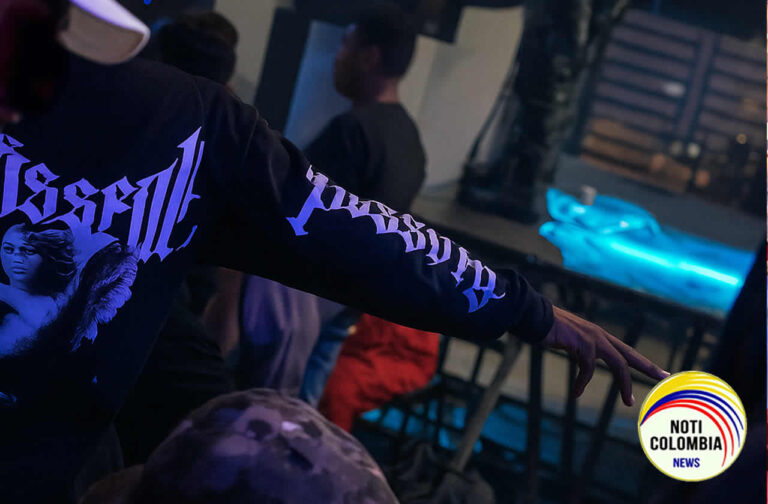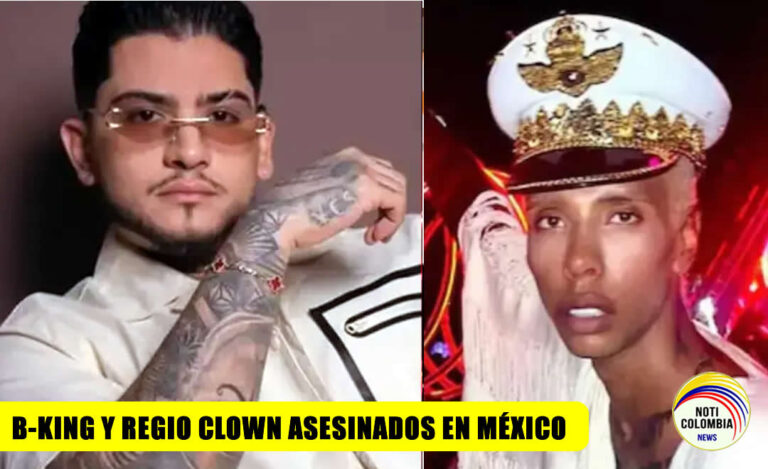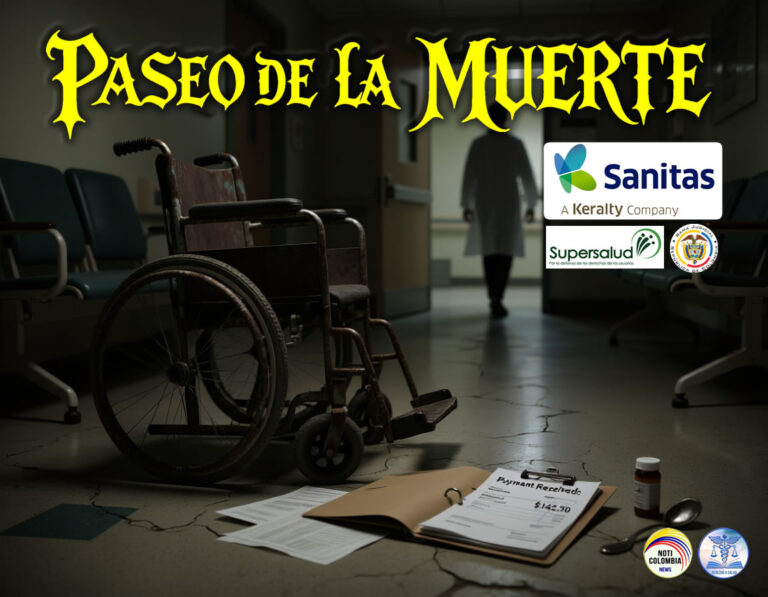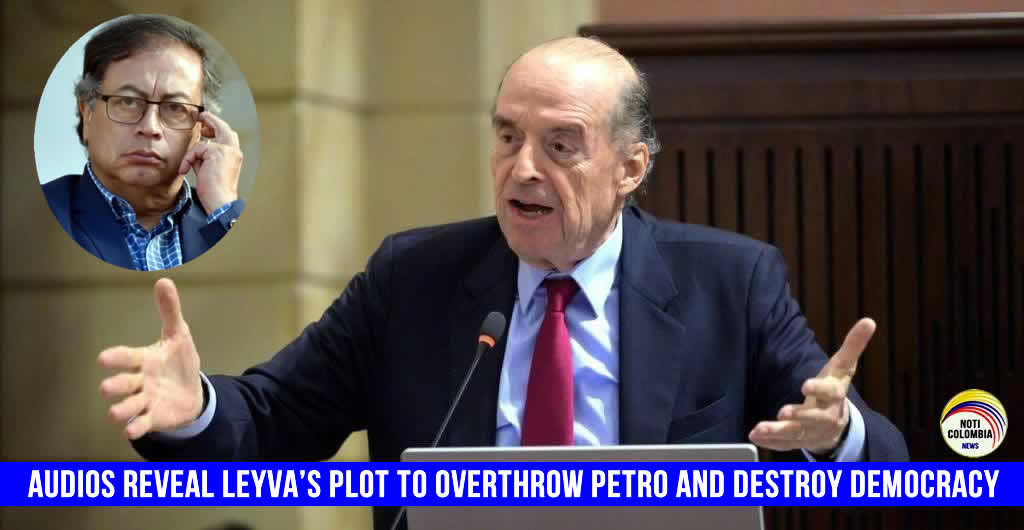
7 Proofs That Words Can Be More Destructive Than Weapons. Álvaro Leyva, once the powerful foreign minister under Gustavo Petro, proved it. He crossed democracy’s red line when he tried to orchestrate a soft coup against the very government he helped build.
Exclusive revelations by EL PAÍS, obtained by journalist Juan Diego Quesada, expose audio recordings where Leyva not only plotted Petro’s downfall, but also sought international support to make it happen. What follows is the detailed account of a betrayal that united Colombia in defense of its democratic institutions.
From Ally to Conspirator: Leyva’s Fall
It all began with a dismissal. In November 2024, the Attorney General’s Office removed Leyva from the cabinet over irregularities in the passport contract process. But what seemed like just another bureaucratic scandal masked a much deeper resentment.
Sources close to the government reveal that Leyva never got over being pushed out of Petro’s inner circle. Worse yet, his desire to secure a diplomatic post for his son Jorge clashed with the president’s refusal. “He was a wounded man who decided to strike back,” confessed a former official who worked with both of them.
That wound bled not only loss of power, but deep frustration. People close to the former minister described his emotional spiral—a transformation from proud strategist to bitter schemer. Colombian politics, long a theater of fleeting alliances and epic betrayals, saw a plot emerge with the scent of national tragedy.
The Coup Plot and the U.S.: One of the 7 Proofs in Action
In April 2025, Leyva traveled to Washington with a clear objective: convince Trump allies and Senator Marco Rubio that Petro was a regional threat. In meetings with Republican congressional aides, the ex-minister went as far as to call Colombia’s president “a drug addict unfit to govern.”
But there was a problem: the evidence was fake. “He presented what he claimed were medical reports, but they turned out to be fabricated,” confirmed a source close to the talks. Even worse was his attempt to implicate Vice President Francia Márquez, suggesting she supported the plan to replace Petro.
Leyva appoints Miguel Uribe, Vicky Dávila, and Francia Márquez
The leaked audios reveal Leyva’s voice with surgical coldness. He spoke as if still shielded by the State, using his diplomatic experience to dress lies in legal language. But the truth has a way of surfacing—and this time it came out loud, clear, and unfiltered.
In one of the most damning fragments, Leyva says, “The pressure has to come from abroad so the transition seems inevitable.” His listeners, initially skeptical, heard him out. What was at stake wasn’t just a man’s name—it was the stability of a deeply polarized region.
The 7 Proofs That Confirm the Plot Against Petro
1. Audio referencing U.S. congressmen
Leyva explicitly discusses contacts with hardline Republicans, including Marco Rubio’s aides.
2. The mention of fake medical reports
Using forged documents to discredit Petro before international institutions was confirmed by witnesses.
3. The transition plan with Francia Márquez
He suggests she would be “more acceptable” to certain power sectors—a claim with no foundation.
4. Planned media manipulation
Conversations show intent to leak news to right-wing outlets in Colombia and Miami to question Petro’s mental health.
5. Calls to freeze investment
He pressures business groups to “accelerate perceptions of economic chaos.”
6. Diplomatic offers in exchange for support
“Possible embassies” are mentioned as rewards if the plan succeeded.
7. A draft letter to the U.S. Congress
Accuses Petro of violating the Constitution and calls for suspension of international cooperation.
7 Proofs Echo Across the Region: A Continental Wake-Up Call
The news echoed throughout Latin America. Media in Argentina, Mexico, and Brazil spoke of a “continental destabilization plan,” drawing parallels between Leyva’s scheme and other far-right movements in the region.
From Spain, the 7 proofs revealed by EL PAÍS were framed as a warning about the fragility of democracy in polarized times. Quesada, the journalist who uncovered the scandal, wrote: “What we’ve heard isn’t just a coup attempt—it’s a continental alarm bell.”
Political Unity in the Face of the 7 Proofs
The scandal sparked unprecedented backlash. From Álvaro Uribe to Humberto de la Calle, figures across the political spectrum condemned the conspiracy. “This isn’t legitimate opposition—it’s treason,” declared ex-president Uribe, whose protégé Miguel Uribe Turbay was named without evidence in the audios.
Inside the government, the reactions were even harsher. Laura Sarabia, Petro’s right hand, labeled Leyva a “miserable opportunist,” while Armando Benedetti accused him of “institutional terrorism.” Francia Márquez responded to the insinuations: “I will never betray the popular vote.”
Even critics of the administration stood up for constitutional order. Sergio Fajardo called it “a line that must never be crossed.” Alejandro Gaviria went further: “In a democracy, disagreement is valid. Conspiracy is not.”
Lessons from the 7 Proofs: Democracy’s Fragile Shield
This episode shows how far political ambition can go. Leyva, a man once involved in historic peace talks, ended up conspiring against the very institutions he vowed to protect. His downfall reminds us that in democracy, disagreements are resolved at the ballot box—not in secret meetings.
But these 7 proofs also leave us with an uncomfortable question: how many others operate in the shadows? The answer depends on all of us. Because, as this case proves, only active civic vigilance can shield democracy from its silent enemies.
24 Powerful Blows to Illegal Mining
Trust, once broken, isn’t restored with press releases. It’s rebuilt with transparency, justice, and memory. And Colombia, a country scarred by betrayal, must remember this episode. Because forgetting would be an invitation to repeat it.
Leyva went from architect of peace to engineer of conspiracy. From presidential ally to a symbol of betrayal. And though his story isn’t over, his name is now etched on the blacklist of those who, in the name of ambition, were willing to burn the house down.
Final Reflection: Words as Weapons, and the 7 Proofs as Warning
This is not just a political scandal. It’s a red alert. Because if anything was proven by these audios, it’s that a poisoned tongue can do more damage than a missile. The words of Álvaro Leyva—once used to sign peace—are now recorded as a deliberate attempt to torch the nation’s institutions from the shadows.
In the middle of this shameful chapter, a searing question slaps us in the face: Where are the clean consciences of those who, with solemn tone and false respectability, repeated as gospel that Gustavo Petro was a drug addict? Did they see him use drugs? Did they use with him? Or was it simply easier to repeat a lie dressed as truth because it came from someone in a tie with a fancy last name? Because they are “decent people”?
Yes, the rejection of Leyva’s betrayal was unanimous—and that honors politics when it dares to stare into the abyss. But the silence of so many others in the face of slander deserves scrutiny too. Because inventing a lie and silently cheering the liar are equally venomous.
And in this swamp, we must not ignore the role of foreign figures like Marco Rubio—the Cuban-American senator who has turned his resentment into political capital. A man who refuses to embrace his roots, who despises where he comes from, while insulting the people of his origin. He too repeated the “drug addict” slur against Colombia’s president—without evidence, without decency, and without a shred of awareness about the regional damage his words could cause.
What happened with Leyva is no anecdote. It’s a brutal warning. A reminder of how close democracy is to the edge when those sworn to protect it feel above it.
And finally, one burning truth: in this country, weapons have killed thousands—but cursed words have killed millions in reputation, dignity, hope, and credibility. Words can heal or destroy. They can build democracy or blow it up from within. And those who wield them with malice, lies, and calculation deserve the same condemnation as those who pull the trigger.
Colombia needs less noise and more conscience. Less cynicism and more memory. Fewer traitors with elegant speeches, and more citizens with ethical backbone. Civic vigilance—the kind that won’t shut up or kneel—is the only force that can stop these dark attempts from returning. Because silence, as we now know, only lets the poison keep spreading. And these 7 revelations are proof of what may come next.
Thank You, Journalism: 7 Proofs That the Truth Still Matters
Thank you, Juan Diego Quesada, Andean Region correspondent for Spain’s El País, for helping save democracy.
Noticolombia.net
